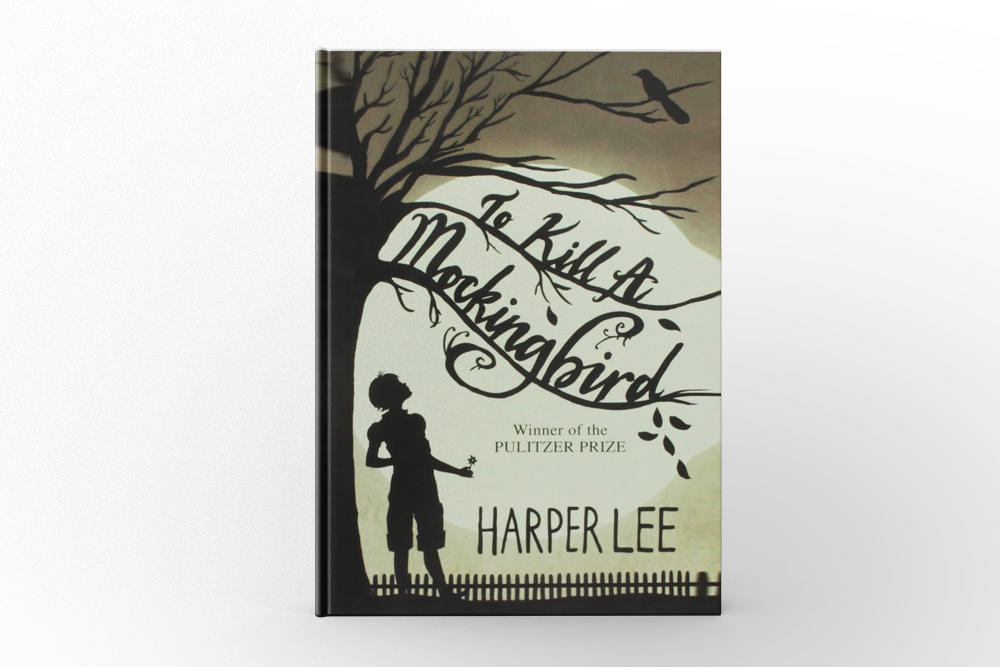“To Kill a Mockingbird” by Harper Lee is a timeless classic that explores themes of racial injustice, moral growth, and compassion. This novel, first published in 1960, is set in the fictional town of Maycomb, Alabama, during the Great Depression.
Author’s Background
Harper Lee, born Nelle Harper Lee in 1926 in Monroeville, Alabama, was an American novelist best known for “To Kill a Mockingbird.” Lee’s upbringing in the racially segregated South deeply influenced her writing. She attended the University of Alabama and briefly studied law before pursuing a career in writing. Lee’s close friendship with Truman Capote also played a significant role in her literary development. “To Kill a Mockingbird” won the Pulitzer Prize for Fiction in 1961 and remains her most celebrated work.
In Depth Summary
“To Kill a Mockingbird” is narrated by Scout Finch, a young girl growing up in Maycomb, Alabama. The novel begins with Scout recalling her childhood and the events that shaped her understanding of morality and justice. Scout lives with her older brother, Jem, and their widowed father, Atticus Finch, a respected lawyer.
The story unfolds as Atticus is appointed to defend Tom Robinson, a black man falsely accused of raping a white woman, Mayella Ewell. Despite the overwhelming evidence of Tom’s innocence, the deeply ingrained racism of the town’s residents makes the trial a foregone conclusion. Atticus’s commitment to justice and his moral integrity stand in stark contrast to the prejudice and hatred that pervade Maycomb.
Throughout the novel, Scout and Jem grapple with the harsh realities of racism and injustice. They witness the townspeople’s hostility towards their father and the unfair treatment of Tom Robinson. The children’s understanding of right and wrong is further shaped by their interactions with Boo Radley, a reclusive neighbor who becomes the subject of their fascination and fear.
The trial of Tom Robinson serves as the novel’s central event, highlighting the deep-seated racism and moral failings of the community. Despite Atticus’s compelling defense, Tom is convicted by an all-white jury. The trial’s outcome devastates Scout and Jem, forcing them to confront the harsh realities of their society.
The novel’s climax occurs when Bob Ewell, Mayella’s father, seeks revenge on Atticus by attacking Scout and Jem. Boo Radley intervenes, saving the children and killing Bob Ewell in the process. This act of bravery reveals Boo’s true character and challenges the children’s preconceived notions about him.
Themes and Insights
“To Kill a Mockingbird” addresses several profound themes. One of the central themes is the moral nature of human beings. Through the character of Atticus Finch, Lee explores the importance of empathy, integrity, and moral courage. Atticus’s unwavering commitment to justice and his belief in the goodness of people serve as a moral compass for Scout and Jem.
Another significant theme is the destructive power of prejudice. The novel’s portrayal of racial injustice and the impact of racism on individuals and communities highlights the need for social change and the importance of challenging discriminatory beliefs and practices.
The novel also delves into themes of childhood and growing up. Scout’s journey from innocence to understanding reflects the broader process of moral and emotional growth. Lee’s depiction of Scout’s evolving perspective on the world around her underscores the importance of education, empathy, and critical thinking in shaping one’s values and beliefs.
Personal Reflections
Reading “To Kill a Mockingbird” is an emotionally resonant and thought-provoking experience. Lee’s eloquent prose and deep empathy for her characters make the reader feel intimately connected to Scout’s journey. The novel prompts readers to reflect on their own values and the impact of societal norms on their beliefs and actions.
Lee’s portrayal of Atticus Finch as a model of moral integrity and compassion is both inspiring and humbling. The novel serves as a powerful reminder of the importance of standing up for justice and treating others with empathy and respect.
Recommendation
“To Kill a Mockingbird” is an essential read for anyone interested in literature, social justice, or the human experience. Lee’s insightful analysis and masterful storytelling make the book both intellectually stimulating and emotionally resonant. It is a timeless classic that continues to captivate readers today.
Impact and Legacy
The impact of “To Kill a Mockingbird” has been profound. The novel is widely regarded as one of the greatest works of American literature and has influenced countless readers, writers, and activists. Lee’s exploration of racial injustice, moral growth, and compassion has left an indelible mark on literary and cultural history.
“To Kill a Mockingbird” has also been adapted into a successful film and stage play, further extending its reach and influence. The novel’s themes of justice, empathy, and moral courage continue to resonate with readers and audiences worldwide, making it a landmark work in the field of literature.
Conclusion
“To Kill a Mockingbird” is more than just a novel; it is a profound exploration of the human condition and the complexities of morality and justice. Harper Lee’s masterful storytelling and deep insights challenge readers to reconsider their understanding of empathy, integrity, and social justice. This review of “To Kill a Mockingbird” highlights the enduring impact of Lee’s work and the powerful lessons it imparts.
